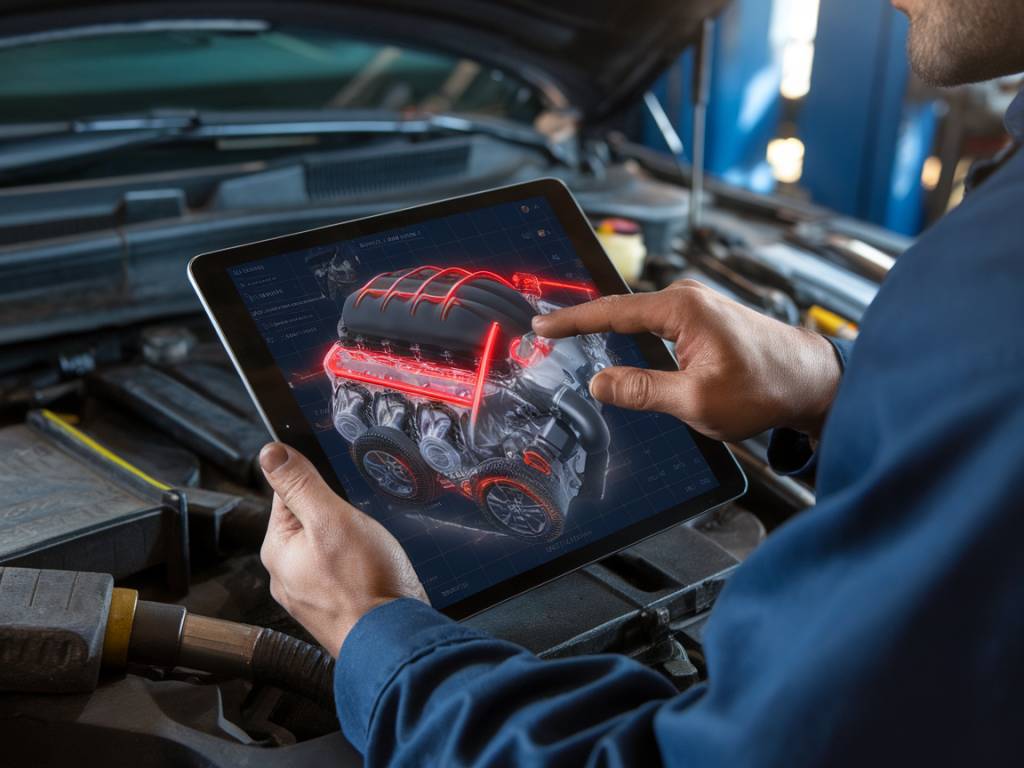In recent years, the automotive industry has experienced a significant transformation due to advancements in technology. One of the most profound changes has been the integration of Artificial Intelligence (AI) into vehicle diagnostics. As AI continues to evolve, it offers promising potential to enhance the precision, efficiency, and reliability of automotive repairs. This comprehensive article explores how AI is revolutionizing modern vehicle diagnostics and the subsequent impact on maintenance.
The Basics: Understanding AI in Vehicle Diagnostics
Artificial Intelligence refers to the simulation of human intelligence processes by machines, particularly computer systems. These processes include learning, reasoning, and self-correction. In the context of vehicle diagnostics, AI employs machine learning algorithms and vast datasets to identify patterns, predict issues, and streamline the repair process.
Traditional vehicle diagnostics relied heavily on manual inspections and standardized diagnostic tools. While effective, these methods are often time-consuming and less accurate. AI enhances these conventional methods by processing large amounts of data in real-time, thereby offering quicker and more precise diagnostics.
How AI-Driven Diagnostics Work
AI-driven diagnostics employ a combination of hardware and software to analyze vehicle systems. Here’s a step-by-step overview of how this revolutionary technology operates:
- Data Collection: Sensors installed in various parts of the vehicle collect vast amounts of data related to the engine, brakes, transmission, and other critical systems. This data is continually monitored and transmitted to a central processing unit.
- Data Processing: The collected data is fed into AI algorithms that compare it with historical data and known fault patterns. Machine learning models are trained to detect anomalies and predict potential failures.
- Diagnosis: Once a potential issue is identified, the AI system provides a diagnosis, often accompanied by a detailed report. This report includes the possible cause of the problem and recommended solutions.
- Actionable Insights: The AI system can even prioritize issues based on severity and provide mechanics with a step-by-step guide to address the problem. This significantly reduces the time required for troubleshooting and repairs.
Benefits of AI in Modern Vehicle Diagnostics
The integration of AI in vehicle diagnostics brings numerous advantages, revolutionizing how automotive maintenance is conducted. Some of the key benefits include:
- Increased Accuracy: AI algorithms are highly effective at analyzing complex datasets and identifying patterns that might elude human diagnosticians. This results in more accurate diagnoses and reduces the likelihood of erroneous repairs.
- Time Efficiency: AI-powered diagnostics can swiftly identify and diagnose issues, significantly cutting down on the time required for manual inspections. This allows vehicles to return to the road faster, minimizing downtime.
- Predictive Maintenance: One of the standout features of AI is its predictive capabilities. By analyzing historical data and current vehicle conditions, AI can predict potential failures before they occur. This proactive approach enables timely maintenance, preventing costly breakdowns.
- Cost Savings: With predictive maintenance, issues can be addressed before they escalate into major problems. This not only reduces repair costs but also extends the vehicle’s lifespan.
- Enhanced Customer Experience: AI-driven diagnostics often come with user-friendly interfaces that provide vehicle owners with clear and concise information about their vehicle’s health. This transparency builds trust and improves the overall customer experience.
AI in Action: Real-World Applications
Numerous examples highlight the effectiveness of AI in vehicle diagnostics. Prominent automotive manufacturers and tech companies are continuously exploring innovative applications:
- Tesla: Tesla’s vehicles are equipped with advanced AI systems that constantly monitor and analyze data from various sensors. The AI-driven diagnostics can promptly detect and diagnose issues, often before the driver becomes aware of them.
- General Motors (GM): GM has incorporated AI-based diagnostic tools in its OnStar system. The system continuously scans the vehicle for potential issues and provides real-time notifications to the driver, suggesting necessary actions.
- Autonomous Vehicles: Self-driving cars rely heavily on AI for diagnostics and maintenance. The AI systems not only ensure the vehicle operates smoothly but also predict and prevent possible malfunctions that could compromise safety.
- Fleet Management: Companies managing large fleets use AI-driven diagnostics to monitor their vehicles in real-time. This allows for efficient maintenance scheduling and reduces the likelihood of unexpected breakdowns.
Challenges and Future Prospects
Despite its remarkable potential, the integration of AI in vehicle diagnostics is not without challenges. Addressing these challenges is crucial for the widespread adoption of AI technology:
- Data Privacy and Security: The vast amount of data collected and processed by AI systems raises concerns about data privacy and security. Ensuring robust cybersecurity measures is essential to safeguard sensitive information.
- Cost of Implementation: Developing and deploying AI-driven diagnostic systems can be expensive. For smaller automotive repair shops, the initial investment might be prohibitive. However, as technology advances and becomes more accessible, costs are expected to decrease.
- Technical Expertise: Leveraging AI technology requires specialized knowledge. Automotive technicians and mechanics need to be trained in using AI-driven diagnostic tools. Bridging the skill gap is essential for effective implementation.
Looking ahead, AI’s role in vehicle diagnostics is poised to grow. Ongoing advancements in machine learning algorithms and sensor technology will further enhance the capabilities of AI systems. As the automotive industry continues to embrace digital transformation, AI will play an increasingly crucial role in ensuring vehicles are safer, more reliable, and easier to maintain. This revolutionary change is not only transforming the maintenance landscape but also paving the way for a future where vehicle diagnostics are more efficient and effective than ever before.

